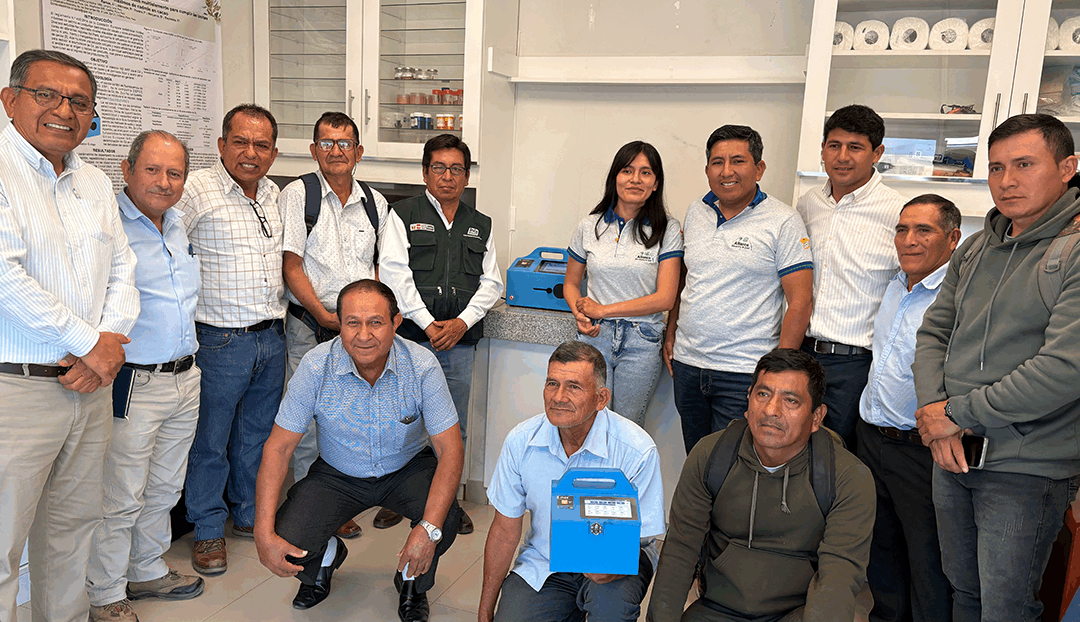On October 15, 2025, XRF analysis equipment for measuring cadmium levels in cocoa was formally handed over to the Norandino Agricultural Cooperative in Piura. This event, which is of great importance for sustainability in the country’s cocoa production chain, is a concrete step in the technological drive promoted by the Clima-LoCa project, funded by the European Union (EU), whose objective is to improve the capacity of small producers and other actors in the production chain to comply with EU safety regulations on cadmium in cocoa, and to strengthen their capacities in the face of climate change.
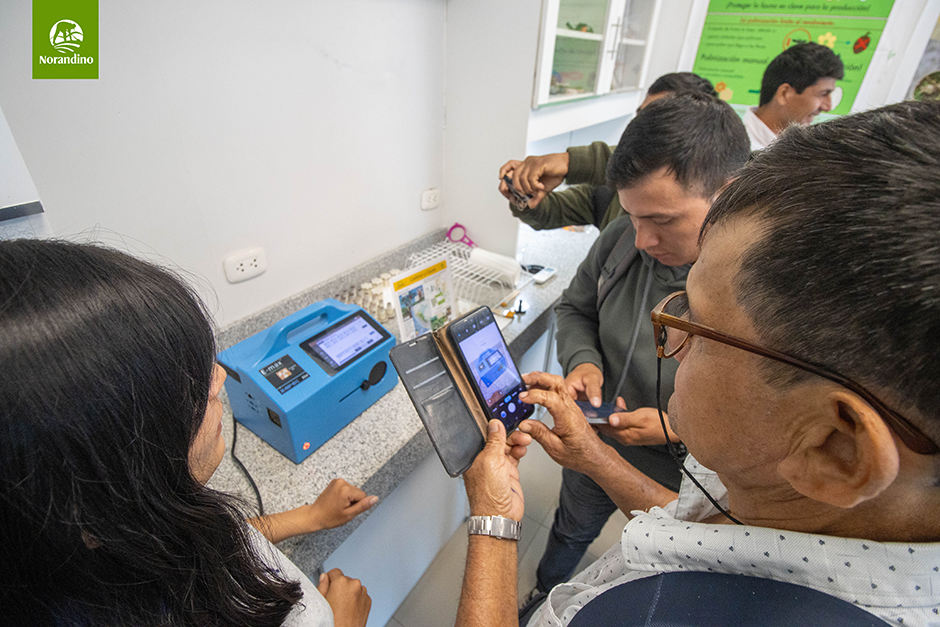
Those attending the award ceremony had the opportunity to learn about the main features of the machine that uses XRF technology. Photo: Norandino.
Cadmium is a heavy metal that can be harmful to health, which is why its presence is regulated by the European Union and other importing countries, establishing maximum limits in different foods we consume, including chocolate and its derivatives. Although the limits established for cadmium levels are for end products, such as chocolate bars, buyers use these limits to determine maximum levels in cocoa beans (commercial batches) according to their recipes, which must be complied with by suppliers to ensure sales. To determine the cadmium levels in commercial lots, samples are sent to laboratories, which involves high analysis costs and waiting times for results, making it difficult to finalize a sale of cocoa beans or derivatives.
Clima-LoCa is a regional project led by the Alliance Bioversity International and CIAT. Since 2020, it has been working in Peru, Ecuador, and Colombia with objectives that include generating information on the presence of cadmium in cocoa and seeking practical and cost-effective solutions to ensure that cocoa complies with the maximum cadmium limits established in different regulations, among others.
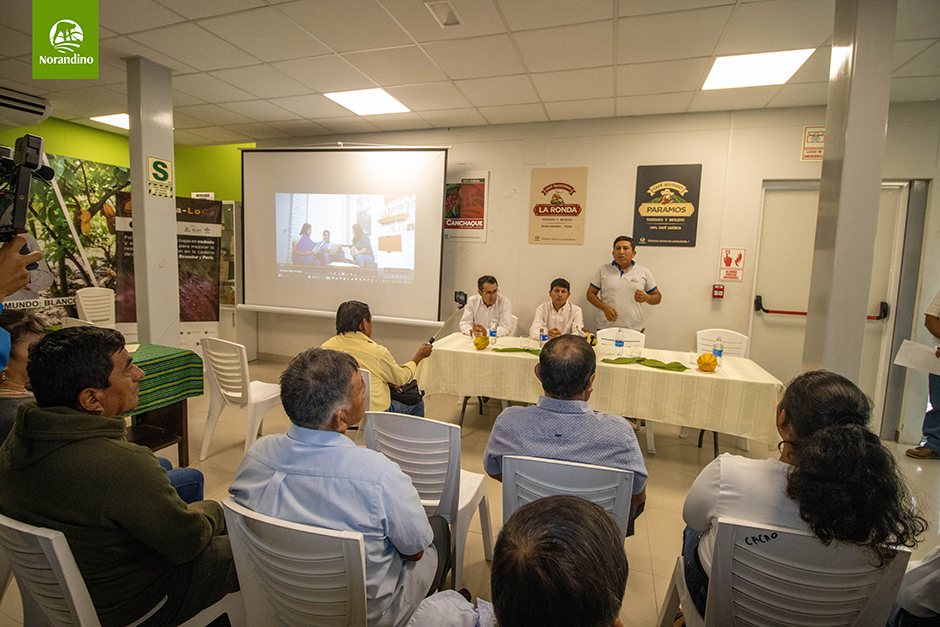
The ceremony was attended by the president of the Norandino Agrarian Cooperative, Ever Castillo, cooperative executives, and members of Norandino’s cocoa organizations. The Clima-LoCa technical team also participated. Photo: Norandino.
Thanks to this project, a new technology has been identified and validated that allows for real-time sample analysis. This tool can be used in basic implementation laboratories, significantly reducing the costs associated with commercial laboratory analysis services. Researchers from the Bioversity International and CIAT Alliance, together with KU Leuven University (Belgium) and the Escuela Superior Politécnica del Litoral, ESPOL (Ecuador) have verified the accuracy of the XRF equipment’s results, published in an international scientific journal. The Norandino Cooperative has confirmed its usefulness for commercial purposes, analyzing all its commercial lots with this technology since 2023. This collaboration has enabled the cooperative to avoid rejections in the delivery of cocoa lots and to export 100 tons of cocoa that had been in its warehouses since 2020, resuming the purchase of cocoa from associations where it had stopped collecting. This success not only helped to recover producers’ income, but also resulted in savings in resources and time, as well as strengthening the autonomy of the cooperative, which now directly manages the quality of its products.
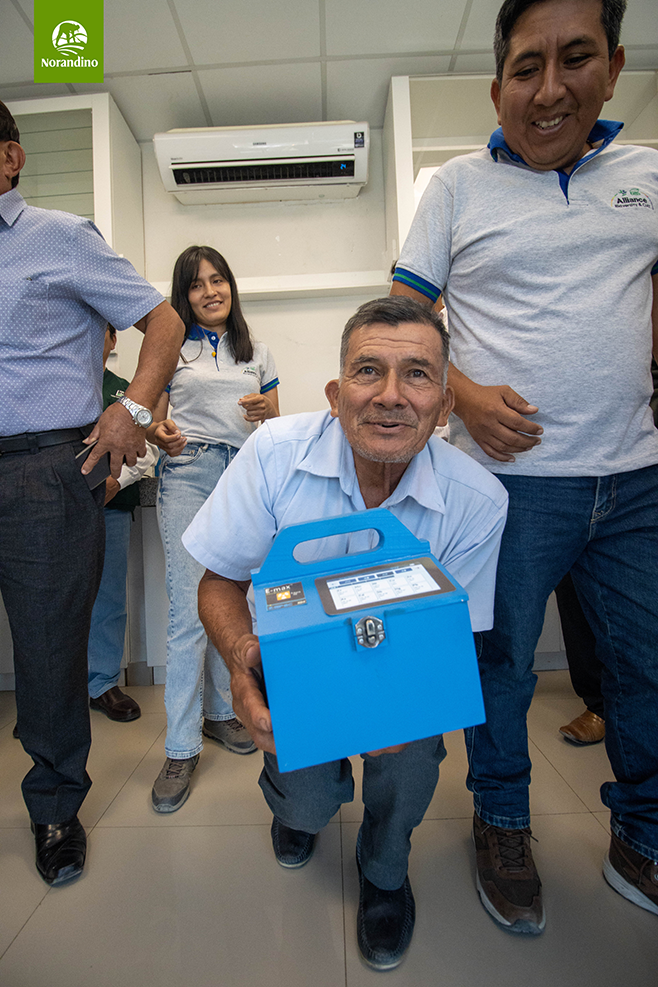
Thanks to the XRF technology used in the machine shown in the image, the Norandino cooperative and its partners have been able to fulfill export orders from their customers in Europe. Photo: Norandino.
The Norandino Cooperative is the main player in the cocoa production chain in Piura and one of the largest cooperatives in Peru, producing cocoa and fine aroma derivatives that have won national and international awards for their quality and unique flavors. It has more than 1,000 cocoa producers and 6,600 associated producers. The incorporation of this technology into its facilities strengthens local technical capacity to comply with international food safety regulations and improves the competitiveness of Peruvian cocoa in global markets.
Eduardo Espinoza, head of the Cacao Department at the Norandino Cooperative, said:
“We are grateful for the technology that has been implemented, which has enabled the cooperative to comply with cadmium regulations and recover the export volumes we had before they came into force, representing a reduction in analysis time and costs and boosting sales, especially in Piura.”
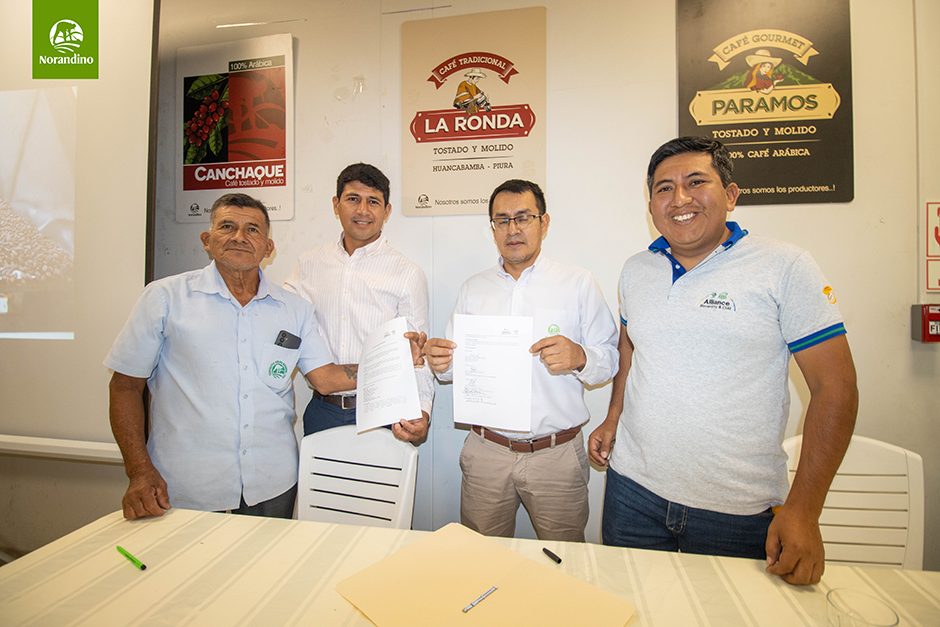
Signing of the agreement for the delivery of the XRF machine to the Norandino Cooperative by the Bioversity International Alliance and CIAT. Photo: Norandino.
Funding from the European Union’s Desira program for the Clima-LoCa project is generating scientific advances that translate into tangible results to support the cocoa sector. This formal delivery of the XRF machine is a sign of the commitment between the European Union, research organizations, and actors in the Peruvian cocoa sector to continue strengthening quality. This initiative is expected to consolidate a more resilient production chain, with direct benefits for farmers and the local economy.
Fredy Yovera, part of the Bioversity International Peru team, said:
“I am proud that our research has helped to overcome a barrier that was limiting the marketing of cocoa producers in the region.”
With this important step, the Alliance Bioversity International and CIAT reaffirms its mission to be an agent of change in the region, generating innovation and contributing to the sustainable development of Peruvian cocoa in Piura, a vital territory for national agricultural exports.
Sobre Norandino
La Cooperativa Agraria Norandino Ltda. es una organización formada por pequeños productores de café, panela, cacao, créditos de carbono y otros, que se unen para trabajar en conjunto, compartiendo recursos y esfuerzos para alcanzar objetivos comunes, cuyos cultivos se encuentran en las distintas zonas de Piura, Lambayeque, Cajamarca, Amazonas y San Martín; promoviendo no sólo la producción, sino también en el fortalecimiento de la comunidad, el desarrollo sostenible y sobre todo la mejora de condiciones de vida de las familias asociadas llevando su producto al mercado local e internacional.

